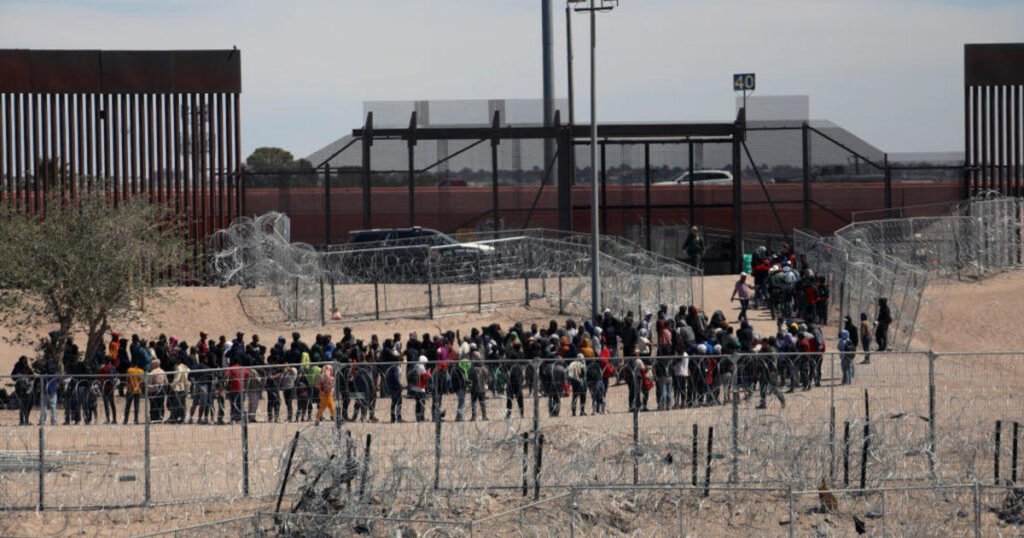The Biden administration has announced an effort to expedite the asylum cases of certain migrants who enter the U.S. illegally along the border with Mexico. Migrant adults released by federal border officials after crossing into the U.S. unlawfully will be eligible for the program, which aims to speed up the process of granting asylum to migrants with legitimate cases and rejecting weaker cases. The current years-long timeframe to decide asylum cases has been criticized for attracting migration by economic migrants who do not qualify for humanitarian protection but often use the asylum system to work in the U.S.
The backlog of cases received by immigration courts has led to wait times that often surpass four years, with fewer than 800 immigration judges overseeing more than 3.5 million unresolved cases. Single migrant adults planning to live in major U.S. cities could be selected for the new process, which will instruct judges to issue decisions within 180 days, rather than years. The announcement of the recent “rocket docket” program is part of the Biden administration’s efforts to curtail unlawful border crossings, following a proposed rule that would allow immigration officials to more quickly reject and deport asylum-seeking migrants who are deemed to endanger public safety or national security.
President Biden has considered a more sweeping measure that would further restrict asylum for those entering the U.S. illegally, which would likely face legal challenges. The administration has argued that unilateral immigration actions are necessary due to the collapse of a border security agreement with a bipartisan group of senators earlier this year. While the deal aimed to restrict asylum and increase deportations without legalizing unauthorized immigrants, it was rejected by most Republicans. The Biden administration has faced unprecedented levels of migration along the southern border, including over two million migrant apprehensions in each of the past two years.
Migrant crossings along the border have recently seen a significant drop, contrary to historical patterns that typically see migration soar in the spring. Increased deportations and an immigration crackdown by Mexico have been credited for the decline in migrant apprehensions. The administration’s efforts to address the surge in migration include the implementation of regulations that make it more difficult for migrants to qualify for U.S. asylum if they enter the country illegally after failing to request refuge in another country. Despite these measures, the administration remains faced with ongoing challenges related to border security and immigration policies.












